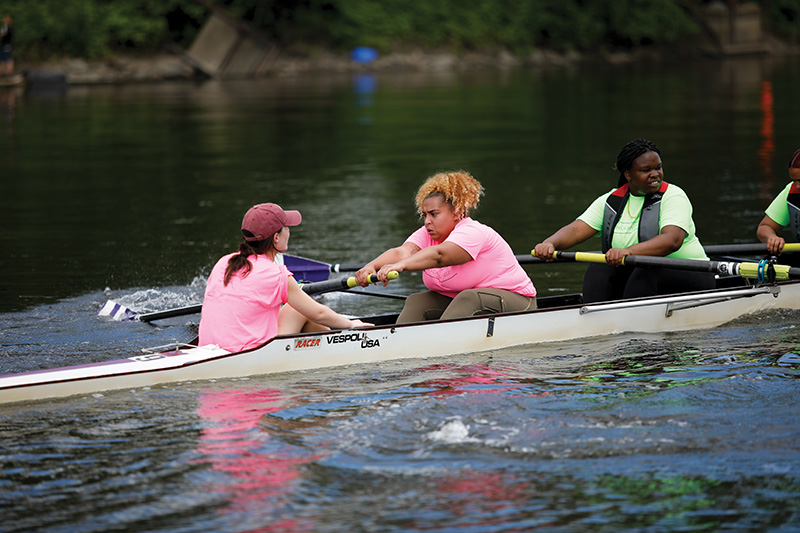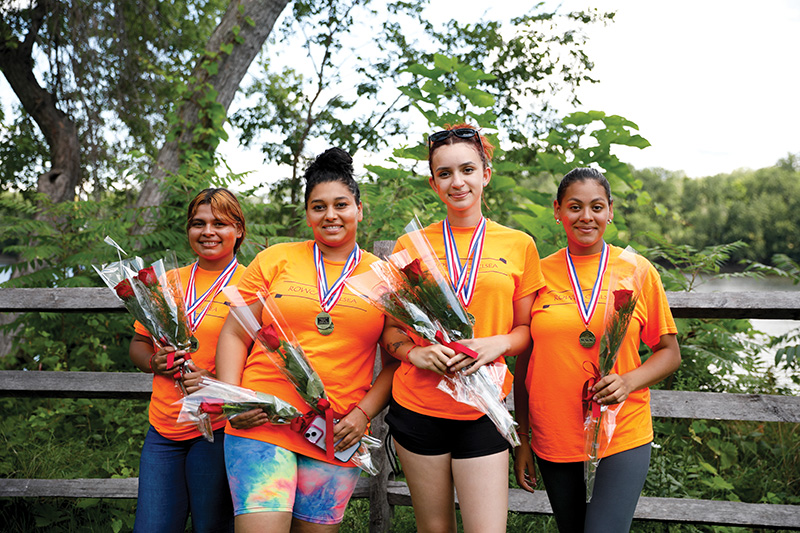
Rowing Proud and Strong from High School Dropout to College Graduate:
The Care Center of Holyoke Leads the Way
If you were sitting around one day trying to think of a category of American citizens who could use your help, young single mothers on welfare would have to be high on your list. Anne Teschner must have gone through such a thought process when she joined The Care Center of Holyoke as its executive director. What she presides over today is a wondrous mix of specific offerings tailored to her constituents: single mothers under 25 (including some high school dropouts), all in dire poverty…many drained of hope, lacking in self-confidence, with no obvious way out…until they come to The Care Center.
The Care Center helps its “students” get access to education (all levels of secondary, high school, and college, regardless of past track records and where they stand at the time they apply). The Center tries to tap into, unlock, and build upon the obscured but unique potential of each of its students. The Center provides day care and everything else needed to allow students to concentrate on academics. The Center does not try to recreate what already exists but is a master at collaboration with existing institutions. A prime example is its partnership with Bard College whereby the Center can offer coursework toward an associate degree accredited by Bard.

Julia Warchol (coxswain), Gabrielle Ruiz, Shanielia Lindsay, Genesis Luciano (just barely pictured). Images Credit: Sarah Crosby.
Among other partnerships, the Center has partnered with Holyoke Row to offer rowing on the Connecticut River as part of its sports program. Teschner believes rowing competitively is not only good exercise, it’s a proven confidence-builder, an activity that is clearly beyond the reach and vision of virtually any single mother on welfare.
Students can apply for the rowing program in January, train and practice for the next eight months, and then compete in the annual Connecticut River race in August.
That rowing should be the signature sport at the Care Center is telling. The program has been in existence for twenty-five years. Halley Glier is in her second year as the Rowing Program Coordinator. A former rower herself at Clark University, Glier believes “Rowers need a lot of mental toughness in a team context. They learn how to be accountable to something bigger than themselves, and they learn valuable interpersonal skills.”
Since its start-up in 1986, the Care Center has helped over 4,000 students. The Center’s income (and expense) budget of $2 million annually today is provided in roughly equal parts by government and private entities. It is need-blind, as far as its students are concerned, as tuition is free. With 100 students total, this comes out to $20,000 per student, a number that is comparable to the cost per student in most public schools in the surrounding area.

Winners of their heat: Maria Alejandra Almandarez, Maria Canelas Turcios, Jazmin Mejia, and Maria de Jesus Zelaya.
The Center serves the cities and suburbs of Holyoke, Springfield, Chicopee, and Hartford. Teschner believes the Center satisfies most of the demand for the Center’s services, but more could be served if the resources were forthcoming.
According to Teschner, the Center “helps young women understand their gifts.” Teschner’s goals for the future are to nourish and expand the Bard Micro-College/Holyoke, provide stable housing—“We have none today”—and add to the endowment… “So it never goes away.”


Dick Shriver
Publisher & Editor
